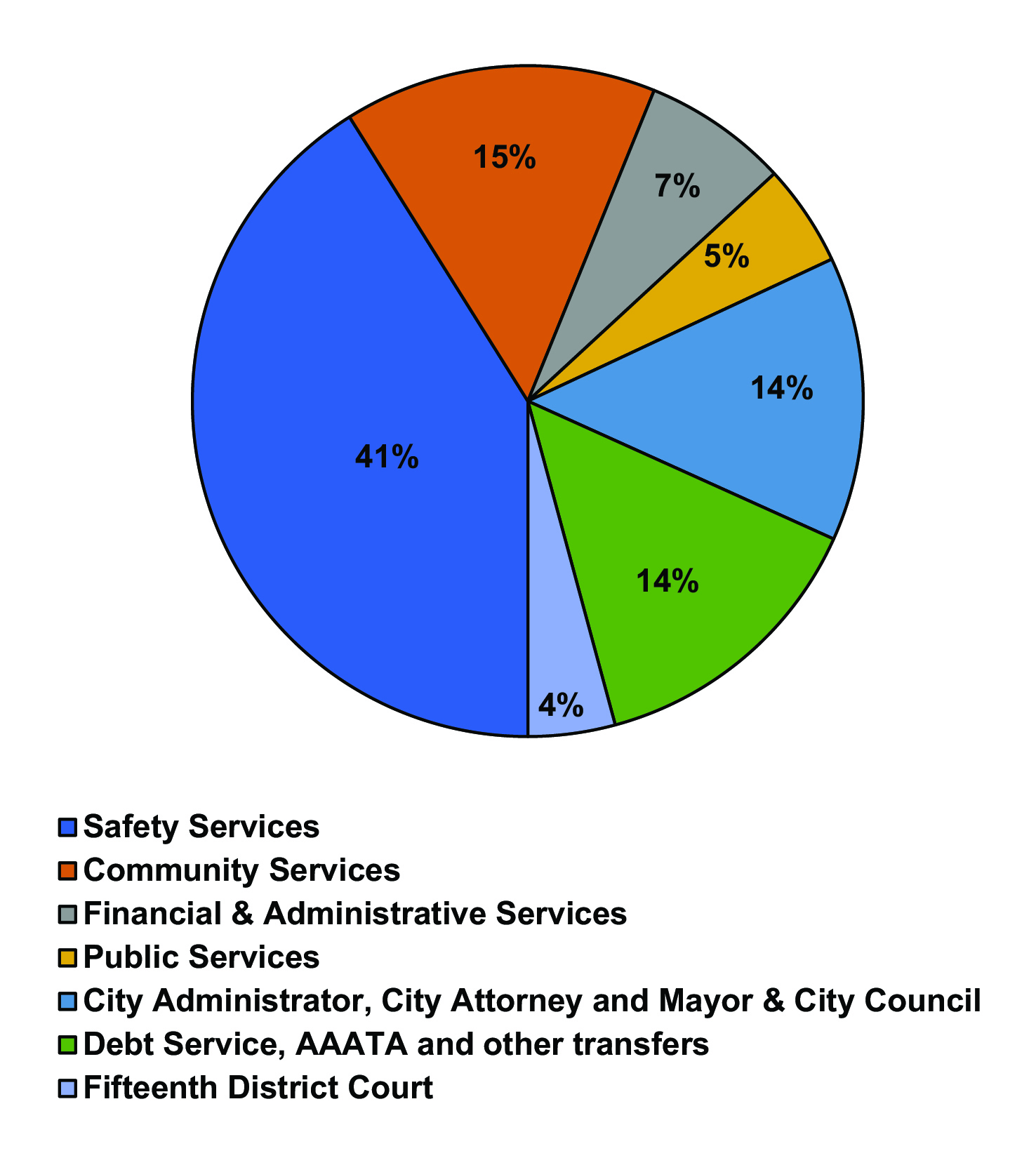What is the purpose of the Citizen Guide to Finance and Budget?
This web resource was created to increase transparency with financial information and in the budgeting process. The Citizen Guide to Finance and Budget (in conjunction with Ann Arbor's Performance Dashboard) was enhanced to include additional items required as part of a State of Michigan program called the City, Village and Township Revenue Sharing (CVTRS) program (Public Act 252 of 2014).
Each eligible local unit must meet all of the requirements of Accountability and Transparency in order to receive the full CVTRS payments. Those requirements include a Citizen's Guide, a Performance Dashboard, a projected budget and a debt service report.
The Citizen Guide to Finance and Budget in conjunction with Ann Arbor's Performance Dashboard, which provides statistics regarding fiscal stability, economic strength, public safety and quality of life for all citizens to view, fulfill the first requirement of Accountability and Transparency.
What is a municipal budget?
Each year the City of Ann Arbor must forecast the revenues it will receive and the expenditures it will incur in the upcoming fiscal year. By Michigan State Law, the City of Ann Arbor’s budget must be balanced meaning revenues must equal estimated expenditures. The resulting formalized document is known as the Municipal Budget. The city runs surpluses when revenues are greater than spending. Conversely, gaps are projected when spending is expected to exceed revenues. The city adjusts revenues and/or spending plans in order to balance its budget.
Per City Charter, City Council can only adopt the City of Ann Arbor Municipal Budget for one fiscal year, which for the City of Ann Arbor begins on July 1 of each year and ends on June 30 of the following year.
What does the municipal budget do?
Each year the Mayor, City Council, City Administrator and City staff work together to develop an Annual Budget. While the budget is being drafted, key stakeholders make decisions on how to utilize the limited revenues that the city receives in order to produce the greatest benefits for the citizens.
The budget serves as an outline for how City of Ann Arbor revenues should be spent to maintain and improve the city. The Mayor, City Council, the City Administrator and interested citizens and businesses all serve as participants in the creation and execution of the annual budget.
The budget is not just an accounting document, it is a management and planning tool. Because the city is limited by the amount of resources available, the budget aids city officials in determining which objectives have the highest priority and will produce the greatest positive impact in our community.
Where does money come from?
The General Fund is the city’s main operating fund. It pays for the core community services such as safety services, parks and recreation, district court and planning and development as well as vital city support functions.
General Fund Revenue
The three major revenue sources for the General fund are property tax, state-shared revenues and charges for services. These revenue sources are dependent on the economic environment and can fluctuate from year to year.
Other General Fund revenue sources are impacted by the economic environment, but not to the same degree. These other sources include fines and forfeits, licenses and permits, and investment income. | |
Other City Funds
In addition to the General Fund, the City of Ann Arbor has 47 other budgeted funds. The reason for having multiple fund types is that certain revenues can only be utilized for a specific purpose. For example, revenue generated by the Street Repair & Sidewalk Millage are deposited in the Street Repair & Sidewalk Millage fund and can only be used for street repair and reconstruction.
Where does the money go?
Every year, the Mayor, City Council, City Administrator and city staff must forecast the coming year's Expenditures and incorporates those estimates into the Municipal Budget. The pie chart below depicts the General Fund budget by department for Fiscal Year 2022.
What is the annual budget timeline?
July 1: Beginning of fiscal year.
Late fall: City Administrator formulates a series of goals in cooperation with City Council that are to be accomplished in the next budget year. Goals are used to guide individual service areas in preparing budget requests.

January: Service Units submit financial budget requests.
February/March: Budget discussions, including City Council Work Sessions, are held to evaluate budget requests.
April: In accordance with City Charter, the City Administrator's Recommended Budget is submitted to City Council on or before April 15.
May: The City Council, with at least seven affirmative votes, must adopt the budget no later than its second meeting in May.
June 30: End of the fiscal year.
Components of the city’s budget
The City of Ann Arbor’s annual budget book includes the following information:
- Budget Message
- Process and Information
- Budget Summaries
- Revenues
- Expenditures
- Departmental Details
- Non-Departmental and Debt Service
- Technology
- Capital Improvement Plan
- Performance Management
- Glossary of Terms
Click
here to view previous adopted budgets.
Do budget modifications require Council approval?
The budget is not a static document and must be responsive to changing circumstances over the fiscal year. In many ways the budget process simply begins with budget adoption. Budget modifications are submitted to Council for approval when based on substantive changes in policy or resource allocation. When a change to the adopted budget is required, a resolution requiring 8 votes of Council must be approved before the budget is amended.
Budget awards
The City of Ann Arbor is proud to have received the Distinguished Budget Award from the Government Finance Officers Association (GFOA) for the City's most recent fiscal year budget.
